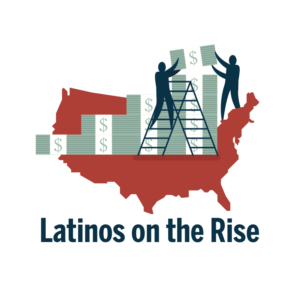“Children are the living messages we send to a time we will not see.”
It’s one of my favorite quotes* because it reminds me of our role as parents, educators, and mentors in preparing our young people for a future that will be hugely different from the one you and I know.
The amount of change we’re experiencing today, largely driven by technological innovation, is only the tip of the iceberg.
So, the question we should ask ourselves is: How do we prepare our kids for a world that is completely different from the one in which they are being brought up?
The 3 Es
There may be different views on this. The way I see it, there are three core strengths we need to forge in the character of our young people in order for them to deal with the accelerated rate of change we’re going to see in the future. These do not supplant the need for a good education and a strong values foundation.
These are: efficacy, entrepreneurship, and ethics—what I call the 3 Es. Let me explain.
1. Efficacy
The first one is efficacy, and more specifically self-efficacy, which has to do with one’s belief in being able to accomplish a task no matter what obstacles come our way. This, according to psychologist Albert Bandura**, the lead thinker on this subject.
People with a high level of self-efficacy are more likely to want to tackle difficult challenges. On the other hand, those with low self-efficacy may shy away from them, Bandura explains.
When you consider a future environment marked by constant change and the need to learn and relearn throughout one’s career, you realize the role that self-efficacy plays in being able to succeed.
Self-efficacy is closely related to optimism in the sense that both endow the individual with the confidence that they will succeed, no matter the challenges.
2. Entrepreneurship
The second core strength in my view is entrepreneurship.
By that I mean the spirit that characterizes entrepreneurs: a willingness to take calculated risks, try new things, learn from mistakes, and the resilience to start all over again.
Technological advancements like Artificial Intelligence will pave the way for new business models. As a result, individuals will need to reinvent themselves many times over, create jobs instead of applying for one, and be resilient to start up all over again.
3. Ethics
The same innovation that enables new business models will raise ethical issues we have not encountered before.
New technologies such as autonomous vehicles and bio-tech, just to name two, are already raising complex ethical issues. We can expect more will continue to emerge as technology makes possible many new scenarios.
The question is, then, what ethical values can we teach kids today that will guide their moral compass when they face new situations in the future?
Are the 3 Es innate or can they be learned?
Not everyone is born an optimist or self-efficient, but the good news is that both can be learned, especially at an early age, according to Martin E.P. Seligman, University of Pennsylvania professor and author of Learned Optimism: How to Change Your Mind and Your Life.
In the case of optimism, which is closely related to self-efficacy, studies prove that yes, optimism can be learned. But the best time to do so is at an early age.
Someone who knows a lot about developing optimism and self-efficacy among young people is Asheesh Advani, the CEO of Junior Achievement Worldwide.
He says that what really helps young people is to hear others say they believe in their ability to achieve their dreams.
There’s no question that hearing somebody say that they are optimistic about your abilities gives you the confidence to go forward.
I can relate to that. In my case, my grandmother changed my life at a time of self-doubt when she said to me “Never let anyone put limitations on what you can achieve. If you want to be an engineer, be an engineer.”
Help them to learn by doing
When it comes to entrepreneurship, learning how to deal with success and failures is a key tenant.
Here’s an example: Do you think your son or daughter has a better chance to be a successful entrepreneur by they time they are 30 if, in while still in their teens, they had run a company as part of the JA Company program?
I know the answer to that, and it is “yes.” When it comes to entrepreneurship, there is nothing better than having a young person run their own company at an early age or play a senior role in one.
As a board member and former chairman of JA Worldwide, I’ve seen what happens when teenagers have a chance to serve as CEOs, CMOs or CTOs of their own company. It gives them experience in leadership, in self confidence, and in entrepreneurship that they will be able to use for the rest of their lives.
If you’re not yet convinced, check out the stories of JA alumni Steve Case, founder of America Online; Sanjay Gupta, CNN medical correspondent and associate chief of neurosurgery at Emory University School of Medicine; and Donna Shalala, president of the Clinton Foundation, former president of the University of Miami and former US secretary of Health and Human Services.
Yes, they’re all former JA students.
You can read their stories, narrated in first person, and those of many other JA alumni in Larry Farrell’s book The Entrepreneurial Attitude: Lessons From Junior Achievement’s 100 Years of Developing Young Entrepreneurs.
Note that not all of them became entrepreneurs in the strictest definition of the term. Yet, clearly, they developed the entrepreneurial spirit that led them to success.
[By the way, even if you are past JA age, I strongly recommend Farrell’s book. In addition to the real-life stories he shares from entrepreneurs young and old, he also shares JA’s plain-and-simple lessons of entrepreneurship that can help people of any age.]Become a role model
Another way we can help young people develop their core strength in all three areas is by exposing them to role models with whom they can relate.
And I mean role models like you.
Never underestimate your ability to impact young people in a positive way no matter what at what level you are in business.
Kids are impressionable. There’s nothing more powerful when you’re at a young age than to see someone who looks and talks like you and who has achieved success.
In my case, that someone was Roberto Goizueta, a first-generation Cuban immigrant who rose through the ranks to become the chairman of The Coca-Cola Company. I did not meet him in person, but a large portrait of him was enough for my mind to connect the dots. “He’s a Cuban immigrant, like me,” I thought. “And he became the CEO of one of the world’s largest corporations. If he could do it, maybe I can do it, too.”
The rest is history.
Modeling Ethics
One could argue that the ethical values we teach at home will provide a moral compass that can guide our youth in a more complex future where good and bad and right and wrong may no be as easily discernible as they are today.
Colleges and universities are already adding courses on this subject in their curricula, and I’m pleased to see great minds invest in think tanks to help us sort this out.
In the meantime, my concern is about the youth who are not yet in college and who are at an age where the right influence can make such a positive impact.
I think it’s important for parents, teachers, and mentors to pay special attention to this as they help forge the character of our youth.
Yes, we can help
If we give kids a solid educational foundation, and on top of that we teach them:
• to be self-efficient, so they can continue to learn their whole life
• to be entrepreneurial, so they can approach new business models, and
• the right ethics, so they can do the right thing when they face new challenges,
then I think the messages we’ll send to the future will be messages of courage, inspiration, and hope.
References:
(*) The quote is the opening sentence in Neil Postman’s book The Disappearance of Childhood.
(**) Bandura, A. (1994). Self-efficacy. In V. S. Ramachaudran (Ed.), Encyclopedia of Human Behavior.



